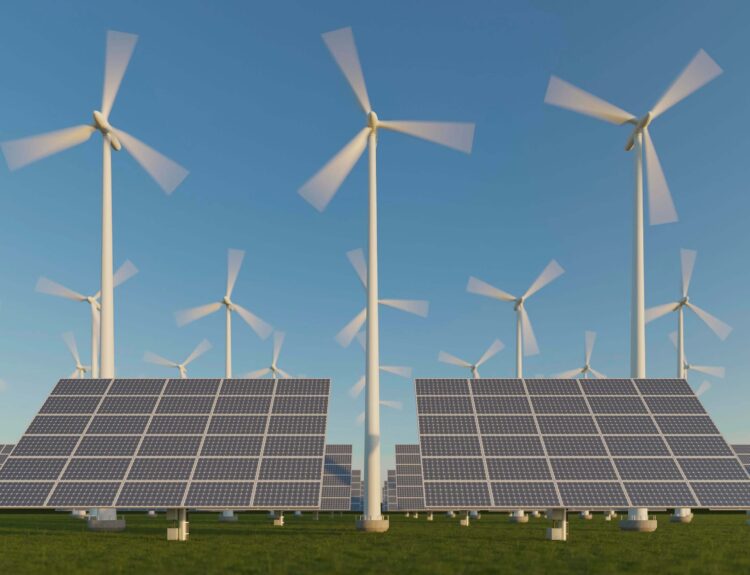Sustainable development is a model of development that can meet the needs of the present and the future. This concept gained widespread attention with the Brundtland Report, prepared by the World Commission on Environment and Development in 1987. The report defines sustainable development as “development that meets the needs of the present without compromising the ability of future generations to meet their own needs.” This definition emphasizes the balance between economic growth, environmental protection, and social equity.
Sustainable development encompasses not only environmental protection but also social and economic progress. Therefore, sustainable development consists of three main components: economic sustainability, environmental sustainability, and social sustainability. These components are interconnected and should be considered as a whole.
The importance of sustainable development is increasing day by day. Environmental issues such as climate change, depletion of natural resources, and loss of biodiversity; social issues such as poverty, inequality, access to education and healthcare; and economic issues such as the sustainability of economic growth highlight the necessity of sustainable development.
Sustainable Development Goals
In 2015, the United Nations adopted the Sustainable Development Goals (SDGs). These goals comprise 17 main goals and 169 sub-goals to be achieved by 2030, aiming to end poverty, protect the planet, and ensure peace and prosperity for all. The SDGs cover the economic, environmental, and social dimensions of sustainable development.
The SDGs include ending poverty, eradicating hunger, promoting healthy lives, quality education, achieving gender equality, clean water and sanitation, affordable and clean energy, decent work and economic growth, industry, innovation and infrastructure, reducing inequalities, sustainable cities and communities, responsible consumption and production, climate action, life below water, life on land, peace, justice and strong institutions, and partnerships for the goals.
Economic Sustainability
Economic sustainability is the efficient and effective use of resources to ensure long-term economic growth. Sustainable economic growth not only meets today’s needs but also ensures that future generations can meet their needs.
The concepts of green economy and circular economy support economic sustainability. The green economy promotes economic growth by conserving natural resources and reducing environmental damage. The circular economy minimizes waste production by promoting the reuse and recycling of resources. These approaches contribute to the development and implementation of sustainable business models.
Sustainable business models aim to increase economic profitability by considering environmental and social responsibilities. These models include the use of renewable energy sources, energy efficiency, waste management, and sustainable supply chain practices.
Environmental Sustainability
Environmental sustainability involves the protection and sustainable use of natural resources. This includes the conservation of ecosystems and biodiversity, improving the quality of water, air, and soil, and addressing climate change.
The sustainable use of natural resources requires balancing current usage to ensure that future generations can benefit from these resources. The use of renewable energy sources (such as solar, wind, hydroelectric, biomass) and energy efficiency are important components of environmental sustainability.
Climate change poses a significant threat to sustainable development. The effects of global warming, rising sea levels, extreme weather events, and loss of biodiversity negatively impact economic and social systems. Therefore, strategies for combating and adapting to climate change should be developed.
Social Sustainability
Social sustainability aims to enhance the welfare and quality of life of society. This includes social justice, equity, access to education and healthcare, and social participation and development.
Social justice and equity ensure equal access to rights and opportunities for everyone. This includes fighting poverty, achieving gender equality, protecting minority rights, and preventing social exclusion.
Access to education and healthcare is fundamental to social sustainability. Quality education enhances individuals’ knowledge and skills, increasing their participation in economic and social life. Access to healthcare services improves the overall health level of society and enhances quality of life.
Social participation ensures that individuals actively participate in decision-making processes. This includes democratic governance, strengthening civil society, and local development projects.
Policy and Governance
Sustainable development requires effective policies and good governance. This necessitates cooperation between governments, the private sector, civil society, and international organizations to achieve sustainable development goals.
Sustainable development policies aim to balance economic growth, environmental protection, and social equity. These policies cover areas such as promoting renewable energy sources, waste management, conservation of natural resources, and access to education and healthcare.
Governance is critical to the success of sustainable development. Good governance includes accountability, transparency, participation, and the rule of law. Governance at the global, national, and local levels enhances the feasibility and effectiveness of sustainable development.
The private sector and civil society play significant roles in sustainable development. The private sector contributes to economic growth by developing sustainable business models and innovative solutions. Civil society supports social sustainability by increasing social participation.
Challenges in Sustainable Development
Sustainable development faces various economic, environmental, and social challenges. These challenges require global cooperation and conflict resolution, the role of innovation and technology, and the effective use of existing resources.
Economic challenges involve ensuring the sustainability of economic growth and reducing income inequality. Environmental challenges include climate change, depletion of natural resources, and loss of biodiversity. Social challenges cover issues such as poverty, inequality, and access to education and healthcare.
Global cooperation and conflict resolution are critical to the success of sustainable development. International cooperation is necessary for the efficient use of resources and achieving sustainable development goals. Conflict resolution is important for ensuring social peace and the sustainability of development.
Innovation and technology are key elements of sustainable development. Innovative technologies offer solutions in areas such as efficient use of natural resources, energy efficiency, and waste management. Technological advancements support economic growth and social development.
Future Perspectives
The future of sustainable development is shaped by new approaches and opportunities. In the future, more cooperation and innovation will be required to achieve sustainable development goals.
New approaches are being developed in areas such as green economy, circular economy, digital transformation, and smart cities. These approaches support the economic, environmental, and social dimensions of sustainable development.
Opportunities lie in areas such as renewable energy, energy efficiency, waste management, sustainable agriculture, and water management. These opportunities create new business and investment areas to achieve sustainable development goals.
Individual and institutional responsibilities are crucial to the success of sustainable development. Individuals can contribute to sustainable development by adopting sustainable consumption and production habits in their daily lives. Institutions can fulfill their economic, environmental, and social responsibilities by developing sustainable business models and strategies.
Sustainable development is a model of development that can meet the needs of the present and the future. It ensures the balance between economic growth, environmental protection, and social equity. The United Nations’ Sustainable Development Goals provide a global framework for achieving this balance.
Economic sustainability is supported by approaches such as green economy and circular economy. Environmental sustainability involves the conservation of natural resources and addressing climate change. Social sustainability includes social justice, access to education and healthcare, and social participation.
Sustainable development requires effective policies and good governance. The private sector and civil society play significant roles in sustainable development. The future of sustainable development is shaped by new approaches and opportunities.
This article aims to comprehensively address the different dimensions of sustainable development. The importance and feasibility of sustainable development, along with future actions, are evaluated. Sustainable development is a process that requires global cooperation and innovation, in addition to individual and institutional responsibilities.





